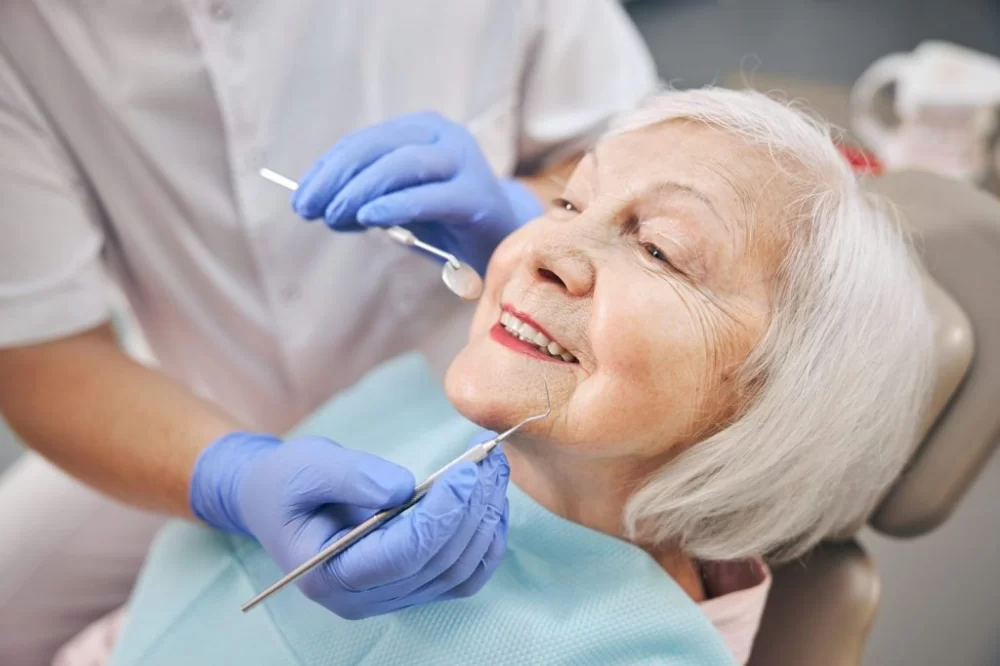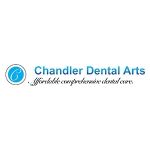
What Does Dental Insurance Cover for Elderly Patients?
As we age, our dental care needs evolve, and so does our approach to dental insurance. After my own experience searching for dental coverage for my elderly parents, I realized how important it is to understand exactly what dental insurance covers for elderly patients. Whether it’s routine check-ups or more complex procedures like dentures, crowns, or even implants, the coverage can vary greatly depending on the plan. In this article, I’ll walk you through what elderly patients can expect from dental insurance, and what steps to take in choosing the right plan for comprehensive coverage.
1. Preventive Care: Essential for Maintaining Oral Health
One of the most common benefits covered by dental insurance plans, even for elderly patients, is preventive care. Regular dental visits are essential to catching potential issues early, and many insurance plans for seniors cover preventive services fully or at a reduced cost. This includes routine check-ups, cleanings, and X-rays, all of which are vital in ensuring that the teeth and gums remain healthy as we age.
I vividly remember my mother’s surprise when her dental insurance fully covered her bi-annual cleanings and check-ups. As an elderly patient, it was reassuring for her to know that these routine services were covered, helping her avoid more costly treatments later. Preventive care is a cornerstone of dental insurance for elderly individuals and can prevent expensive procedures down the line by catching issues early.
2. Basic Procedures: Fillings, Extractions, and More
For elderly patients, dental insurance often covers basic procedures like fillings, extractions, and some minor repairs. This coverage is essential, as cavities and gum issues tend to increase as we age, often due to wear and tear, medications, or health conditions that affect oral hygiene.
My father, for example, required several fillings after years of dental neglect. Fortunately, his insurance plan covered these basic procedures at a reasonable rate. Insurance providers typically offer coverage for basic restorative procedures, although patients may still need to pay a portion of the cost depending on the type of plan they have and the severity of the issue.
3. Crowns and Bridges: Restoring Function and Aesthetics
As teeth weaken over time, dental crowns and bridges become more common for elderly patients. These procedures help restore functionality and improve the appearance of teeth that are severely damaged or missing. Many dental insurance plans offer partial coverage for crowns and bridges, but the percentage covered can vary widely. Some plans might cover up to 50%, while others may cover less.
I saw firsthand how important it was for my mother to have a crown placed on a damaged tooth. Without the insurance coverage, the out-of-pocket cost would have been prohibitive, but with a solid plan, she only had to pay a small portion of the cost. Be sure to check the specific coverage for crowns and bridges when selecting a dental insurance plan, as these procedures can be costly without adequate coverage.
4. Dentures: A Vital Option for Seniors
Dentures are another common dental need among elderly patients. As we age, tooth loss can become more prevalent, and dentures become an essential solution for restoring the ability to chew and speak clearly. Many dental insurance policies provide partial coverage for dentures, but like crowns and bridges, the coverage often only accounts for a portion of the overall cost.
When my grandfather needed dentures, I was relieved to discover that his dental insurance covered a portion of the expense. While it wasn’t enough to cover the full cost, it significantly reduced the burden of paying for the dentures out of pocket. If you or your loved one may need dentures, make sure to review your dental insurance to understand what is covered under your plan.
5. Root Canals and Other Major Procedures
For elderly patients, the risk of needing more invasive procedures, like root canals or even oral surgeries, increases. Root canals are typically necessary when a tooth becomes infected or when the pulp is damaged. Dental insurance for elderly patients usually covers a portion of these major treatments, but the coverage might vary depending on the provider and the plan.
I remember my mother-in-law needing a root canal last year. She was worried about the cost, but fortunately, her dental insurance plan covered a significant portion of the treatment. While she still had some out-of-pocket expenses, the coverage made the procedure more affordable than it would have been without insurance. Make sure to check whether root canals and similar treatments are covered by your dental insurance plan, especially if there’s a history of dental issues.
6. Implants: A Potentially Costly Treatment
Dental implants are becoming an increasingly popular option for replacing missing teeth, particularly for elderly patients who want a more permanent and natural-looking solution compared to dentures. However, implants can be quite expensive, and many dental insurance plans do not cover them fully. While some plans may provide partial coverage for implants, they are often considered a "cosmetic" procedure and are excluded from basic coverage.
When my uncle was considering dental implants, he found that his plan only covered a small percentage of the cost. For some patients, dental implants may be an out-of-pocket expense unless you opt for a specialized insurance plan that includes coverage for this type of procedure. If implants are something you're considering, be sure to ask about this coverage when shopping for dental insurance for elderly patients.
7. Periodontal Care: Addressing Gum Disease
Gum disease becomes more prevalent with age, and it’s one of the leading causes of tooth loss among seniors. Thankfully, many dental insurance plans cover periodontal care, including treatments for gum disease like scaling and root planing, which are necessary to prevent further damage to the teeth and gums.
My own experience with periodontal care came when I noticed my gums starting to recede in my late 50s. Thankfully, my insurance plan covered the costs of treatment, which included deep cleaning to address the early stages of gum disease. Gum disease is a serious concern for elderly patients, and comprehensive dental insurance plans typically offer coverage for treatments to manage and reverse its effects.
8. What’s Not Covered by Dental Insurance for Elderly Patients?
While dental insurance for elderly patients covers many necessary services, it’s important to understand that not all procedures will be included. Some common exclusions include cosmetic treatments like teeth whitening, certain types of oral surgery, and sometimes even orthodontic treatments unless specified in the plan. Additionally, the coverage for certain procedures may be limited by age, and some plans have maximum coverage limits that may not fully cover the total cost of extensive treatments.
For example, my aunt was surprised to find that her plan didn’t cover some of the more advanced cosmetic dental procedures she was hoping for, such as tooth bonding. It’s always important to read the fine print of your plan to understand what is and isn’t covered.
9. How to Choose the Right Dental Insurance for Elderly Patients
Choosing the right dental insurance plan for elderly patients requires a little bit of research. It's crucial to compare plans to ensure you find one that offers adequate coverage for the services most likely to be needed as you age. Look for a plan that covers preventive care, basic procedures like fillings, crowns, and bridges, and any major procedures like dentures or implants that may become necessary.
When shopping for dental insurance, be sure to check the provider’s network of dentists, as you want to ensure that your preferred dentist is included. Additionally, take into account the premiums, co-pays, and deductibles to make sure the plan is affordable for your budget.
Ultimately, good dental insurance for elderly patients can help manage the costs of necessary dental care and ensure that you or your loved one maintains a healthy smile for years to come.







 Community Health Centers4.0 (206 review)
Community Health Centers4.0 (206 review) Hawthorne Dental Associates5.0 (463 review)
Hawthorne Dental Associates5.0 (463 review) The Pediatric Dental Group Milford4.0 (655 review)
The Pediatric Dental Group Milford4.0 (655 review) La Verne Dental Group4.0 (220 review)
La Verne Dental Group4.0 (220 review) Chandler Dental Arts4.0 (715 review)
Chandler Dental Arts4.0 (715 review) University of the Pacific, Arthur A. Dugoni School of Dentistry3.0 (261 review)
University of the Pacific, Arthur A. Dugoni School of Dentistry3.0 (261 review) The Importance of Oral Health Education During Pregnancy for a Healthy Pregnancy
The Importance of Oral Health Education During Pregnancy for a Healthy Pregnancy Best Tips for Brushing Your Teeth Properly for Healthy Gums: Essential Techniques for Oral Health
Best Tips for Brushing Your Teeth Properly for Healthy Gums: Essential Techniques for Oral Health Why Skipping Dental Checkups Can Lead to Bigger Oral Health Problems
Why Skipping Dental Checkups Can Lead to Bigger Oral Health Problems Advantages of Porcelain Dental Restorations
Advantages of Porcelain Dental Restorations How Can Diabetes Cause Tooth and Gum Problems? Preventing and Managing Oral Health Issues
How Can Diabetes Cause Tooth and Gum Problems? Preventing and Managing Oral Health Issues Healthy Habits for Promoting Good Oral Health and Hygiene: Tips for a Healthy Smile
Healthy Habits for Promoting Good Oral Health and Hygiene: Tips for a Healthy Smile